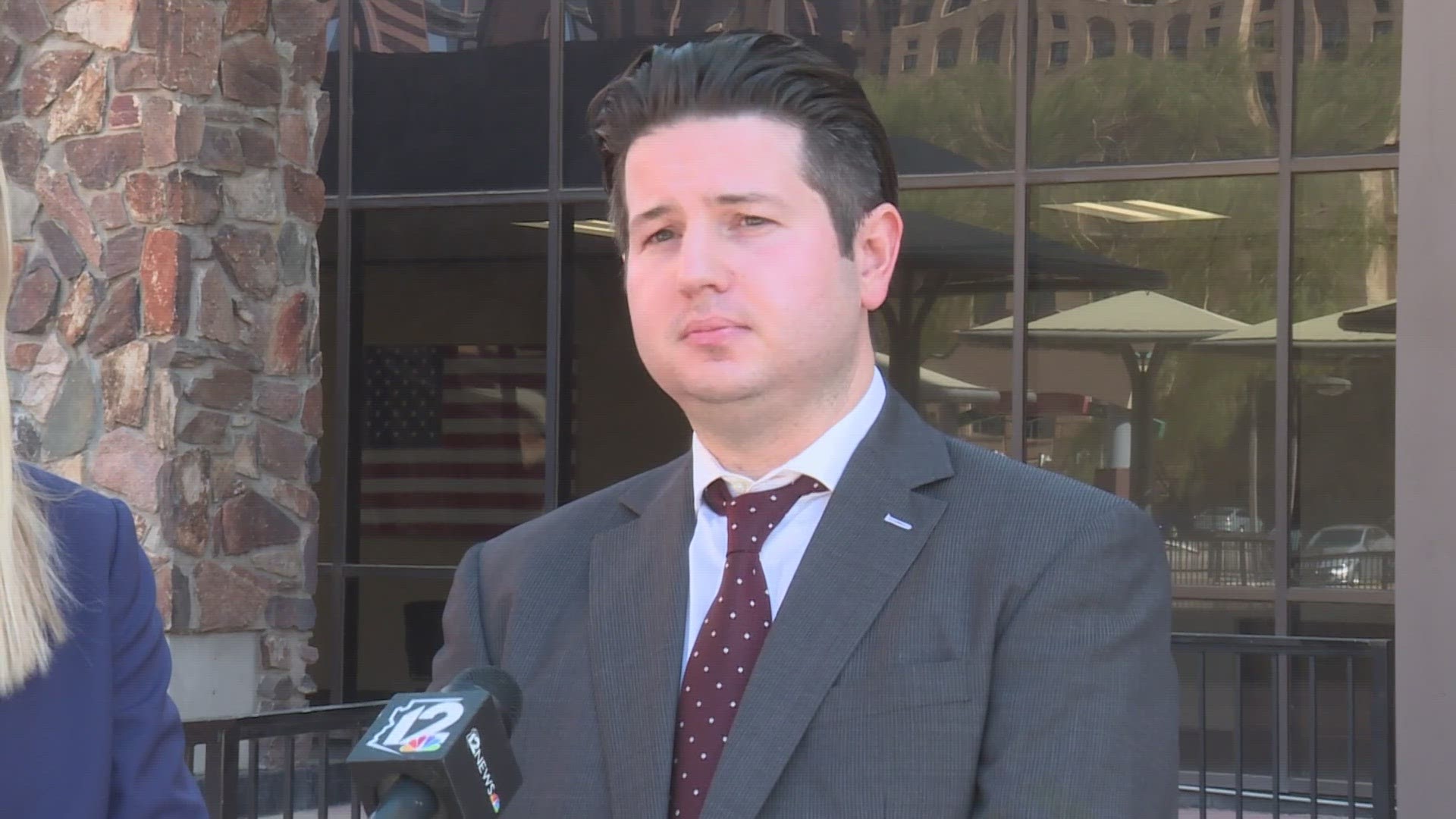PHOENIX — A convicted killer who served his prison sentence ended up back in prison less than a year after being released due to a parole violation. He's been fighting that violation for the past six years, but a judge's decision that came down Tuesday means he will stay behind bars.
In 1986, Jacob Wideman murdered Eric Kane, his roommate at a camp in Flagstaff. They were both 16 years old.
Wideman was sentenced to life in prison with the possibility of parole after 25 years served.
After serving 30 years in prison, Wideman's request for parole was granted. He was released to house arrest in 2016.
But months later, Wideman's parole was revoked.
According to Wideman's attorney, it was all because of a minor mix-up over an appointment. They said Wideman got a call from his probation officer, instructing him to make an appointment with a doctor by the following day. Wideman called the doctor twice, but the doctor was out of the office so he didn't call back in time. Wideman was arrested and has been back behind bars ever since.
“He’s been in prison for six years. Because of that? That’s the best they could come up with?” said Joshua Hamilton, Wideman's attorney. “This is not a game. This is his life."
Wideman filed a petition for special action with the courts to dispute his revocation.
During a hearing in August, his attorneys and attorneys for the Arizona's Board of Executive Clemency, or parole board, presented their cases.
Eric Kane's family was virtually present for the hearing. They have fought against Wideman's release for years.
Wideman listened in virtually from prison.
“It’s as serious as I’ve ever seen and he deserves to be treated in accordance with the law," Hamilton said.
Attorneys for the board argued Wideman had many opportunities to make the appointment. They said Wideman already made his case in a previous petition for special action which led to a second parole board hearing.
“How often Mr. Wideman delayed getting done what the parole officer asked him to do suggests that he was avoiding complying and trying to manipulate the system," said Kelly Gibson, the attorney for Arizona's Board of Executive Clemency.
Ultimately, the case was left in the hands of Judge Mark Brain. He had three options: deny Wideman's request, release Wideman from prison, or instruct the board to hold a new hearing.
After reviewing the arguments for two months, Judge Brain issued his ruling on Tuesday and denied Wideman's request.
Wideman's case is chronicled in a podcast called "Violation" hosted by Beth Schwartzapfel of The Marshall Project.
“This case just sort of pushes the boundaries of how much grace we're willing to extend to a person," Schwartzapfel said. "Whether we believe in second chances.”
She said she was surprised by the judge's decision.
"I was really surprised. I was surprised by a number of things. First and foremost that the judge's decision seemed almost cursory. It was very short. There wasn't a ton of legal reasoning in it. The last the last time Wideman filed a special action, the judge issued a very long and thoughtful ruling," Schwartzapfel said.
In Judge Brain's three-page decision, he wrote, "Wideman argues that there was insufficient evidence for the Board to find that Wideman was about to lapse. The Court is not authorized to substitute its judgment for the Board's judgment, but instead merely to determine whether the Board acted within its discretion. Here, there was evidence that Wideman's parole officer had prodded Wideman to begin counseling with Dr. McCaine for some time, and he had failed to do so. The Board had a basis for its rulings."
The closing of this chapter likely doesn't mark the end of Wideman's fight for his release from prison.
“Wideman has a couple of options. His attorneys have indicated that they plan to appeal. So I think that's what we can expect to see. The other option Wideman has is he could go before the board and begin asking for parole again, the way he did for many years," Schwartzapfel explained.
Hamilton, Wideman's attorney, indicated in a statement he plans to appeal the judge's decision.
"Jake Wideman was stripped of his parole release status in violation of the law and without just cause. We were eager to get this case before the court, and were grateful to make our arguments before Judge Brain inside the courtroom. The facts and the law are clear: what happened to Jake was unfair and illegal. The court's decision is a devastating blow and hard to come to terms with given the undisputable facts and the law as it applies to them. But we want to be clear: this is not the end of this fight. We strongly disagree with the court's reasoning and conclusion. We will vigorously appeal this flawed decision, and we are confident that justice will prevail."
>> Download the 12News app for the latest local breaking news straight to your phone.
12News on YouTube
Catch up on the latest news and stories on the 12News YouTube channel. Subscribe today.

